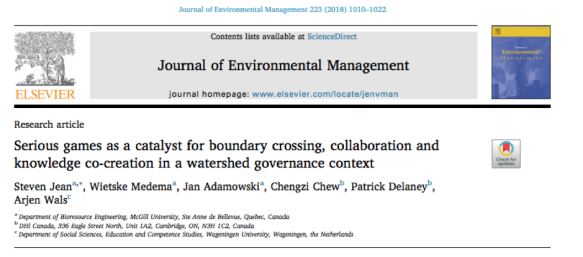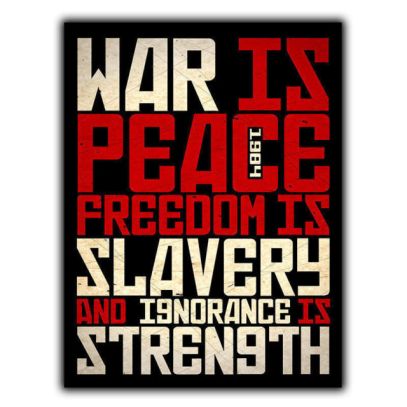
Thanks to the wonderful work mainly of Steven Jean and Wietske Medema I am glad to be part of the above paper that appeared in the latest issue of the Journal of Environmental Management (Jean et al., 2018, JEMA, 223, 1010-1022). You can have a look here: Serious Gaming, Boundary Crossing and Water Governance
ABSTRACT
Novel methods for enhancing collaboration and interactions are required to ensure that stakeholders and governments are able to develop a shared vision that supports sustainable watershed governance. Particular attention must be placed on integrating stakeholders who would otherwise have limited decision-making power. By crossing professional, ideological and jurisdictional boundaries, stakeholders’ perspectives are more likely to change than when staying within those boundaries. This process, known as boundary crossing, requires boundary objects; either artifacts, people, or institutions that play a bridging role between different boundary spaces. For this study, serious games powered by scientific models are identified as potentially effective boundary objects. A serious game simulation called Aqua Republica was used to organize game simulation events allowing stakeholders to connect in an in-person, informal and novel setting. This exploratory research aims to study the role and impact of serious games as boundary objects to enhancing collaboration and knowledge co-creation. The following research questions are addressed: (1) Do interactions increase over the course of a game simulation event? (2) Does the quality of interactions change over the course of a game simulation event? (3) Are the quantity and quality of interactions affected by pre-existing relationships? And if so, how? (4) How does the relationship between participants change over the course of a game simulation event? As part of this study, four game simulation events were organized that included students, professionals and diverse stakeholder groups working in watershed management contexts across Eastern Canada with 40 participants in total. Participants were divided into teams of 3–5 members and were surveyed and their interactions recorded. An interaction and social network analysis of the audiovisual recordings of each game simulation event indicates that interactions between participants increase in both quantity and quality as the game progresses. The analysis shows that serious game simulations provide an intervention platform not only to facilitate cross-boundary interactions, but also to strengthen relationships between diverse stakeholders, as expressed by an increase in mutual trust and empathy, as well as an improved understanding among the participants of the watershed system and the complex issues at stake.

